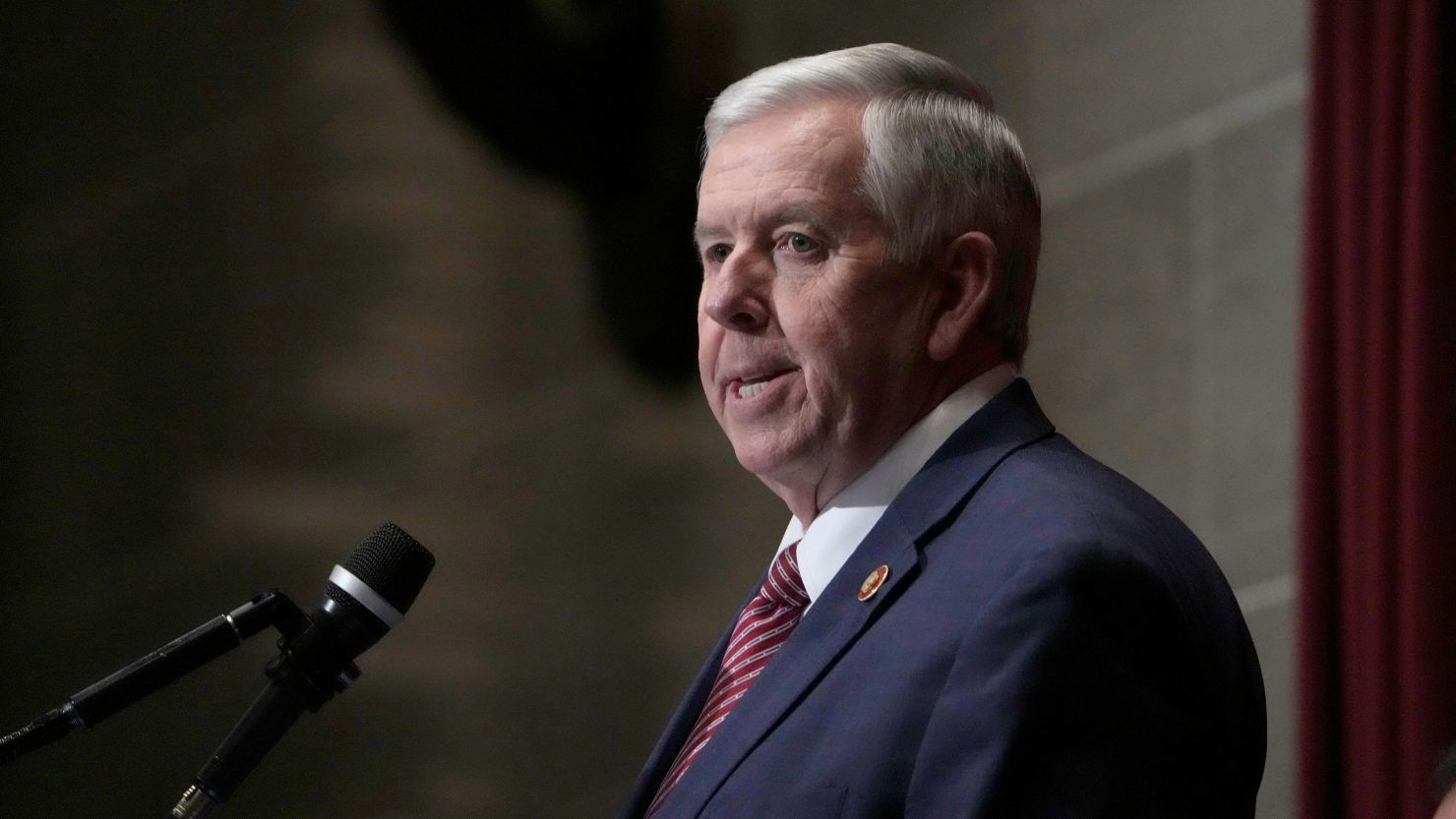Missouri’s Republican Gov. Mike Parson on Wednesday signed into law two bills targeting the rights of transgender people in the state, including a ban on gender-affirming care for minors and a prohibition on trans women and girls from playing on sports teams that align with their gender.
Parson defended the signing of both bills in a tweet, calling it “an effort to protect the integrity of female sports and Missouri children from potentially harmful experimental surgeries and treatment.”
Senate Bill 49, the “Missouri Save Adolescents from Experimentation (SAFE) Act,” will limit minors’ access to gender-affirming care, which spans a range of evidence-based treatments and approaches that benefit transgender and nonbinary people. The types of care vary by the age and goals of the recipient and are considered the standard of care by many mainstream medical associations.
Under the law, puberty blocking medication and hormone treatments are banned until August 2027, along with gender transition surgeries, although they are not typically done on children and many health care providers do not offer them to minors. A health care provider who violates the new law would have their license revoked.
The law takes effect August 28. Missourians prescribed gender-affirming medication prior to the law taking affect will be allowed to continue using those drugs.

“We support everyone’s right to his or her own pursuit of happiness; however, we must protect children from making life-altering decisions that they could come to regret in adulthood once they have physically and emotionally matured,” Parson tweeted following the signing.
Transgender youths’ access to gender-affirming care has become a flashpoint in red states across the country.
Though the care is highly individualized, some children and parents may decide to use reversible puberty suppression therapy. This part of the process may also include hormone therapy that can lead to gender-affirming physical change. Surgical interventions, however, are not typically done on children and many health care providers do not offer them to minors.
Some Republicans have expressed concern over long-term outcomes of the treatments. But major medical associations say that gender-affirming care is clinically appropriate for children and adults with gender dysphoria – a psychological distress that may result when a person’s gender identity and sex assigned at birth do not align, according to the American Psychiatric Association.
Parson’s signature makes Missouri the 17th state to place restrictions on trans youths’ access to gender-affirming care so far this year. Texas placed its own care ban on the books last week and similar bills are swiftly making their way through several Republican-led state legislatures. Around 130 bills that target health care for transgender patients have been introduced nationwide this legislative session, according to data compiled by the American Civil Liberties Union.
The new law follows the withdrawal of a separate restriction issued by GOP Attorney General Andrew Bailey in April that threatened to cut off the health care for minors and most adults. Bailey pulled the controversial emergency rule – the first time a state has attempted to impose such restrictions on trans adults – after lawmakers had passed their own ban.

SB39, also signed by Parson on Wednesday, prohibits public and private schools, including colleges, from allowing students to participate in gendered athletic competitions that do not match their biological sex as listed on a birth certificate or government record, or from competing against a team without such a policy. A violation of this law would result in the institution not receiving any state aid.
“Women and girls deserve and have fought for an equal opportunity to succeed, and we stand up to the nonsense and stand with them as they take back their sport competitions,” Parson said in a Twitter post. “In Missouri, we support real fairness, not injustice disguised as social righteousness.”
Advocates of such measures have argued that transgender women and girls have physical advantages over cisgender women and girls in sports. But a 2017 report in the journal Sports Medicine that reviewed several related studies found “no direct or consistent research” on trans people having an athletic advantage over their cisgender peers, and critics say this legislation adds to the discrimination that trans people face, particularly trans youth.
PROMO, an LGBTQ public policy advocacy group based in Missouri, criticized Parson for signing the restrictions, particularly during Pride Month.
“Today, Governor Parson showed just how little Missouri’s state government values LGBTQ+ lives and, in particular, transgender and gender-expansive youth,”Shira Berkowitz, PROMO’s senior director of public policy and advocacy, said in a statement. They added that the new laws “add to the embarrassing history of elected leaders intentionally taking action to harm transgender Missourians.”




